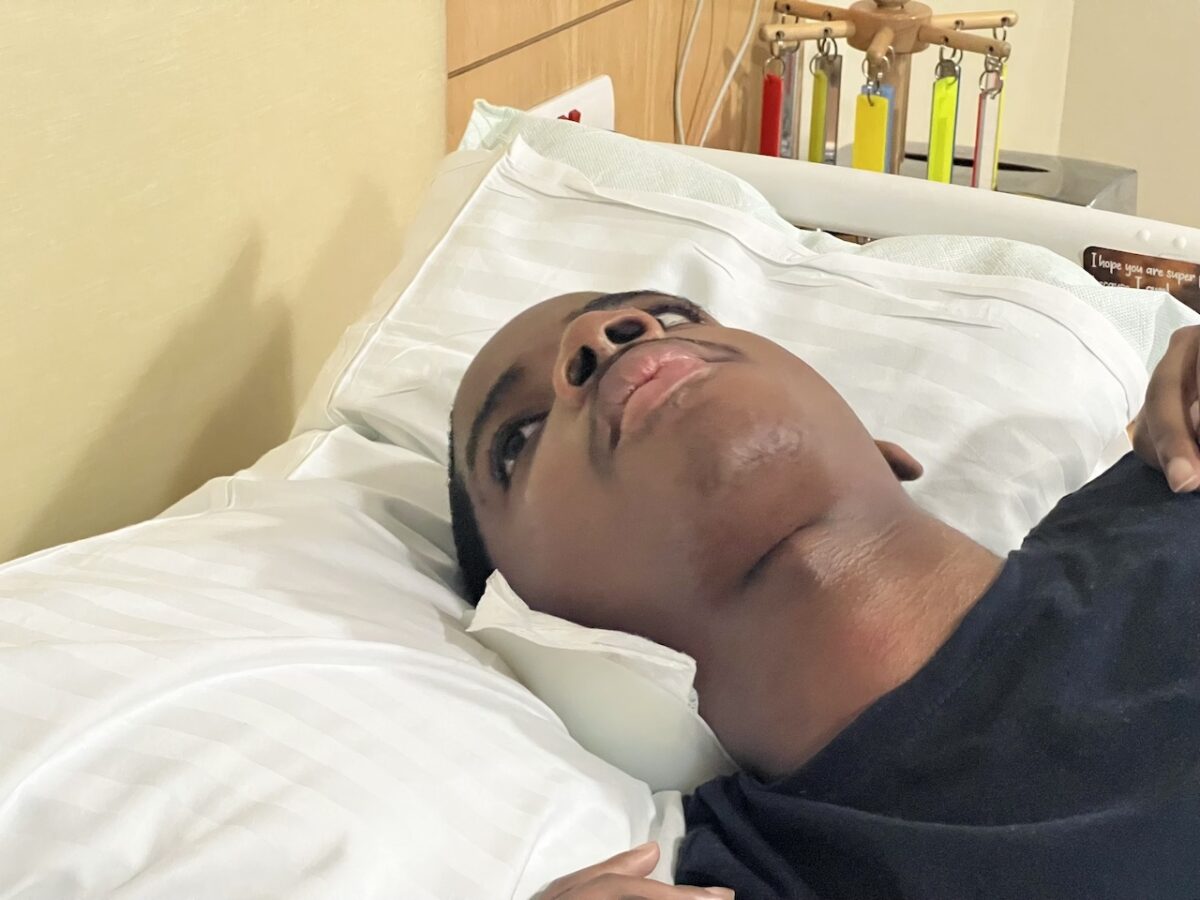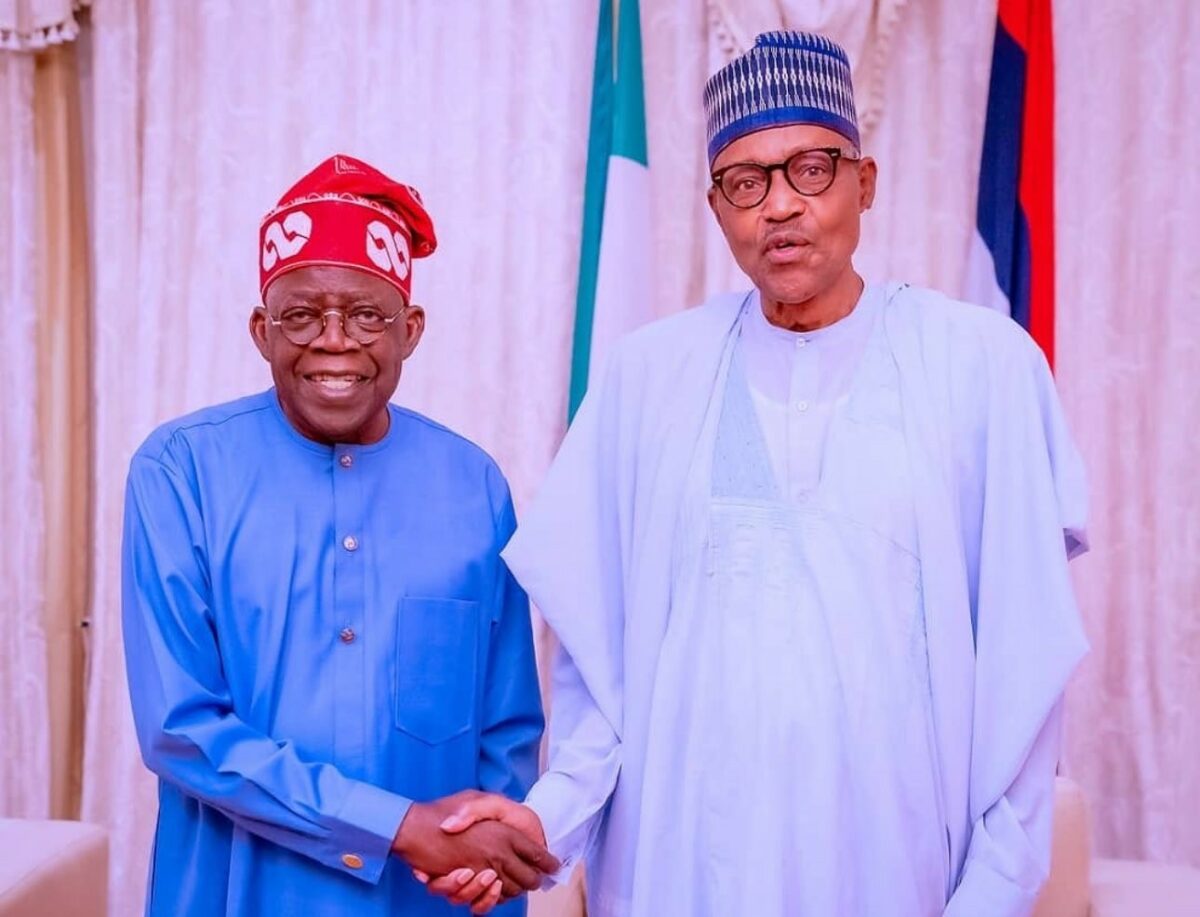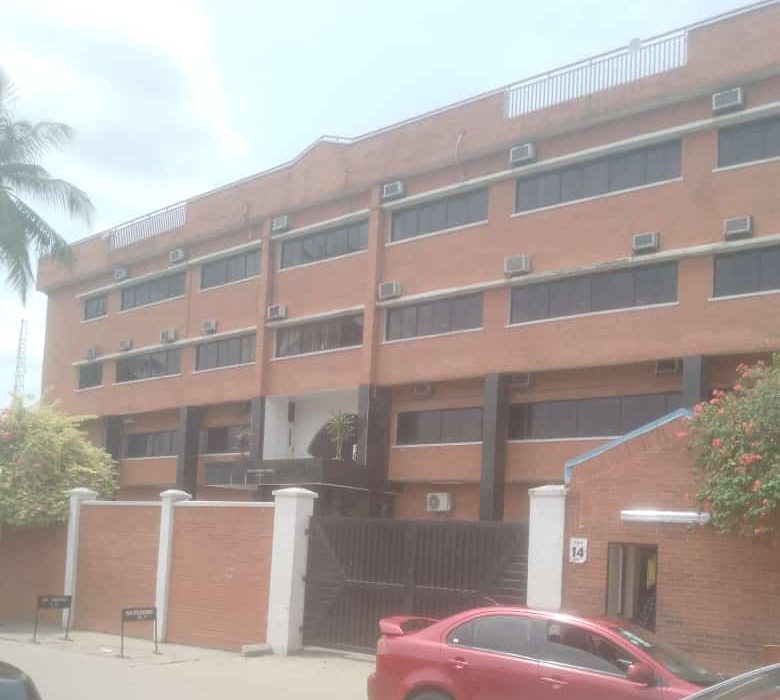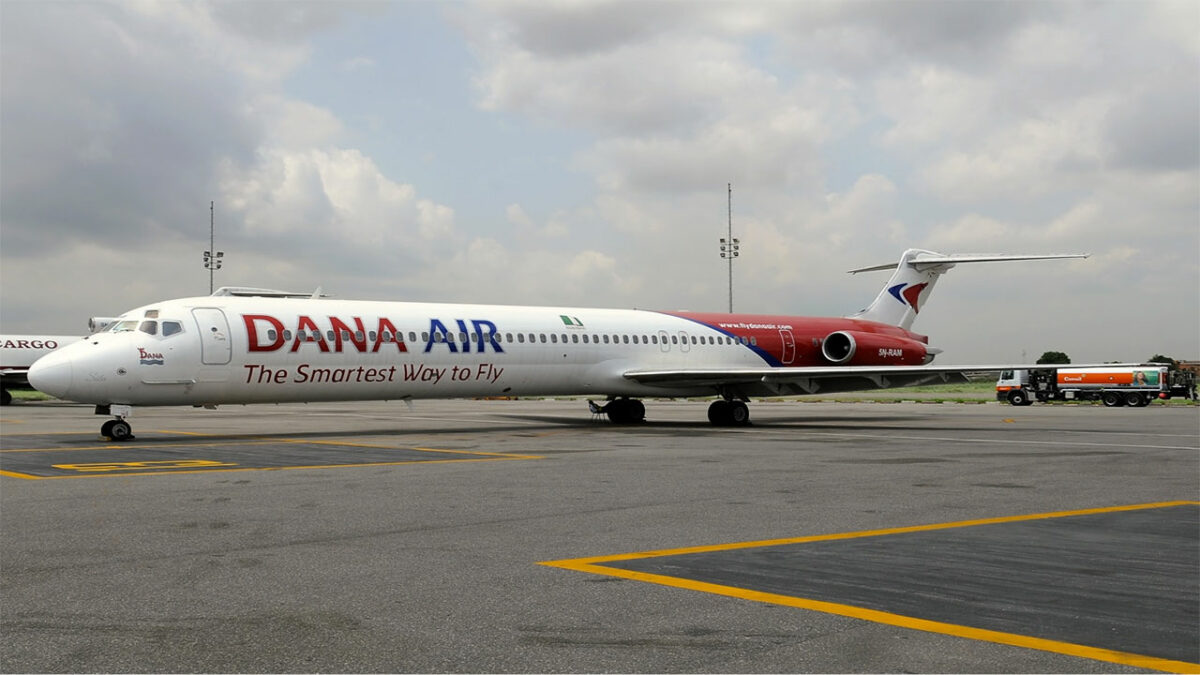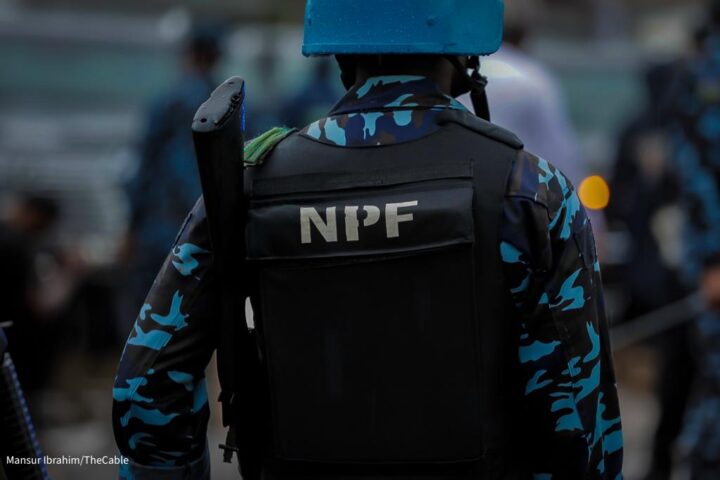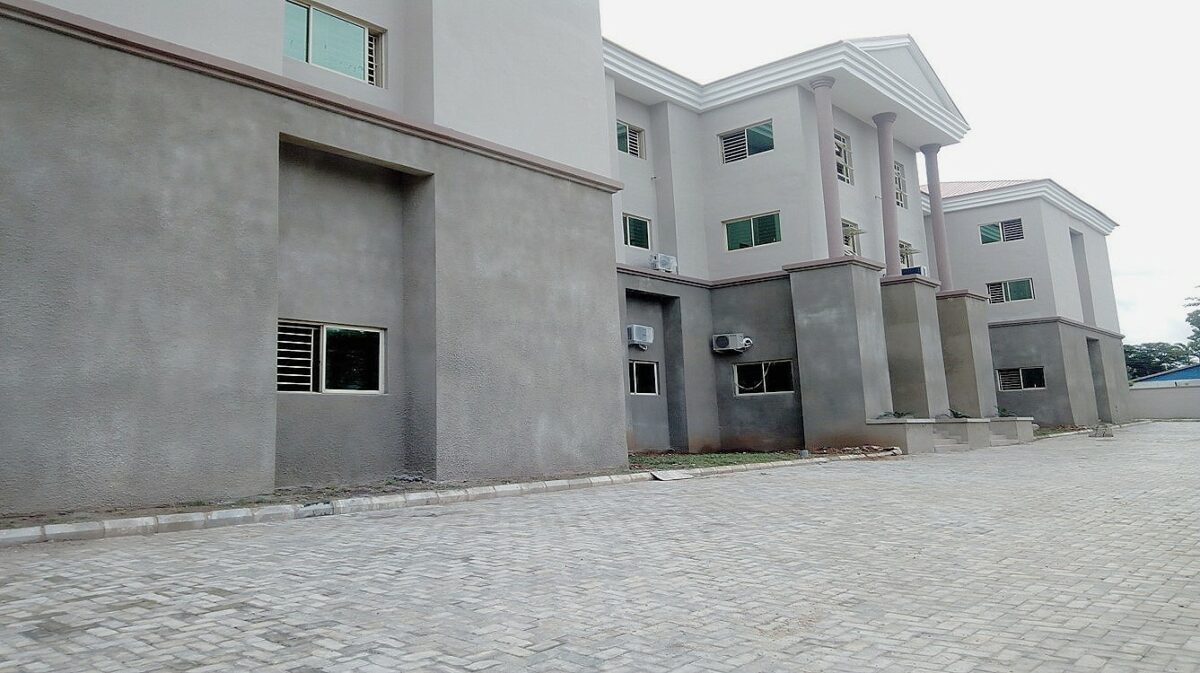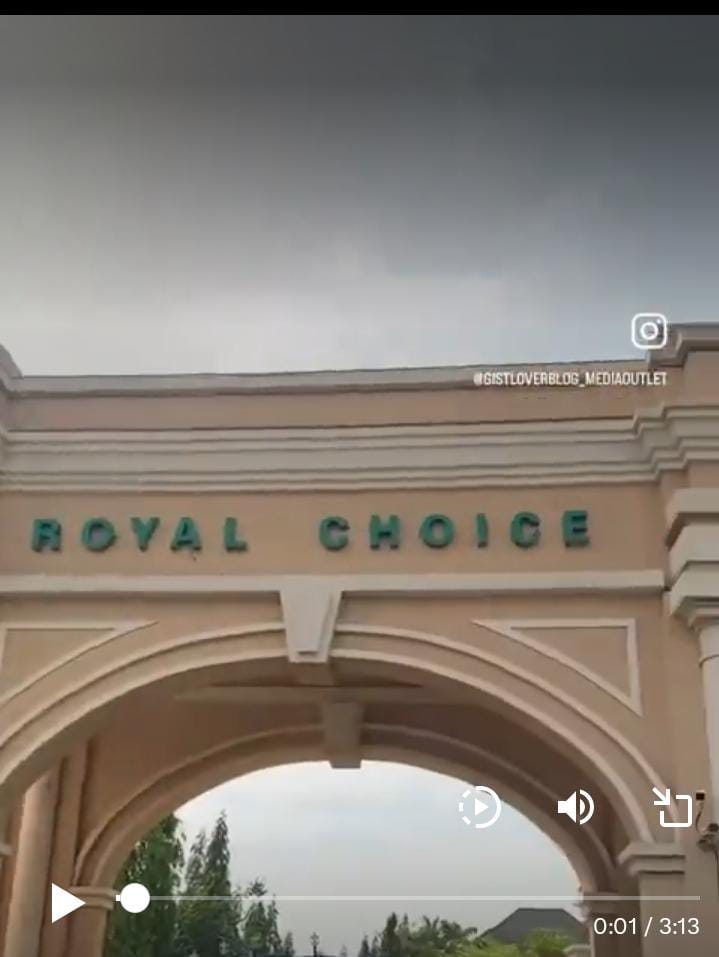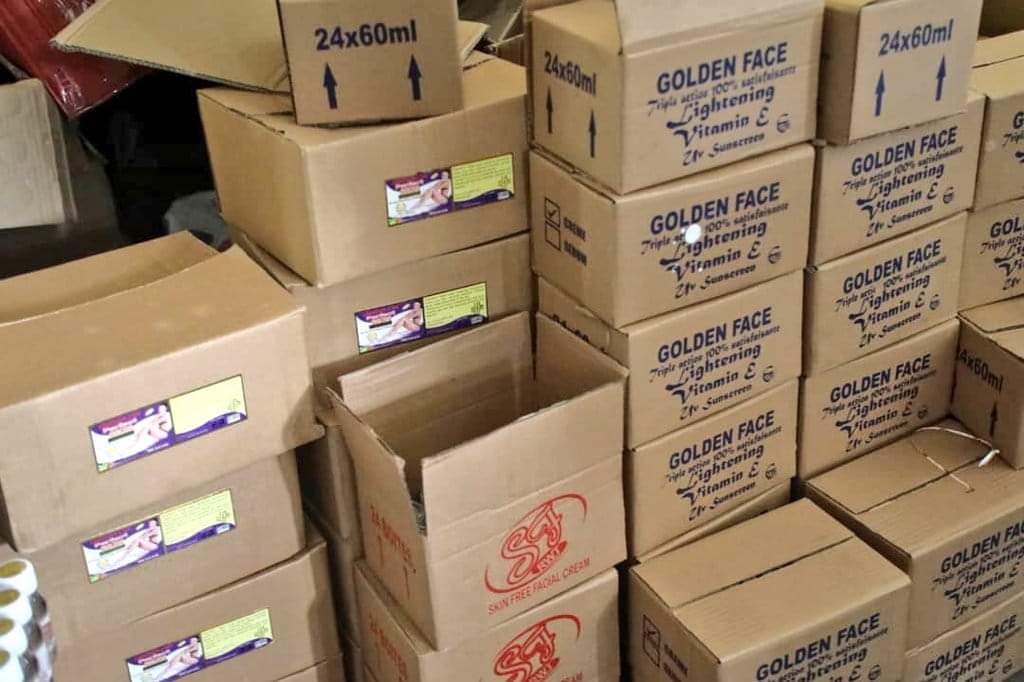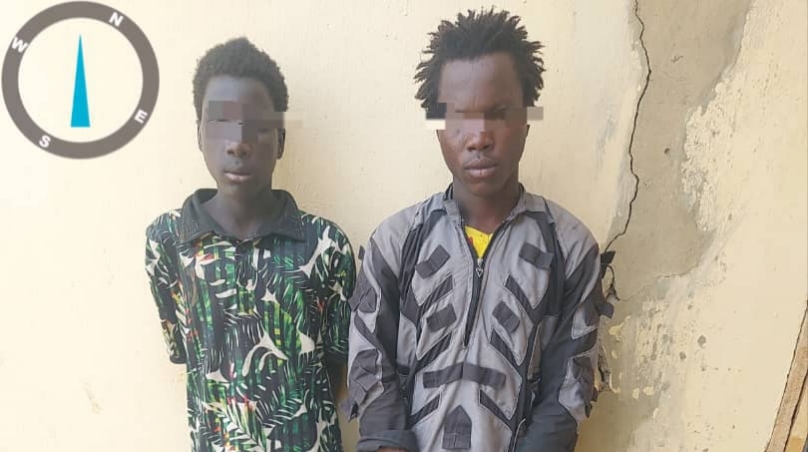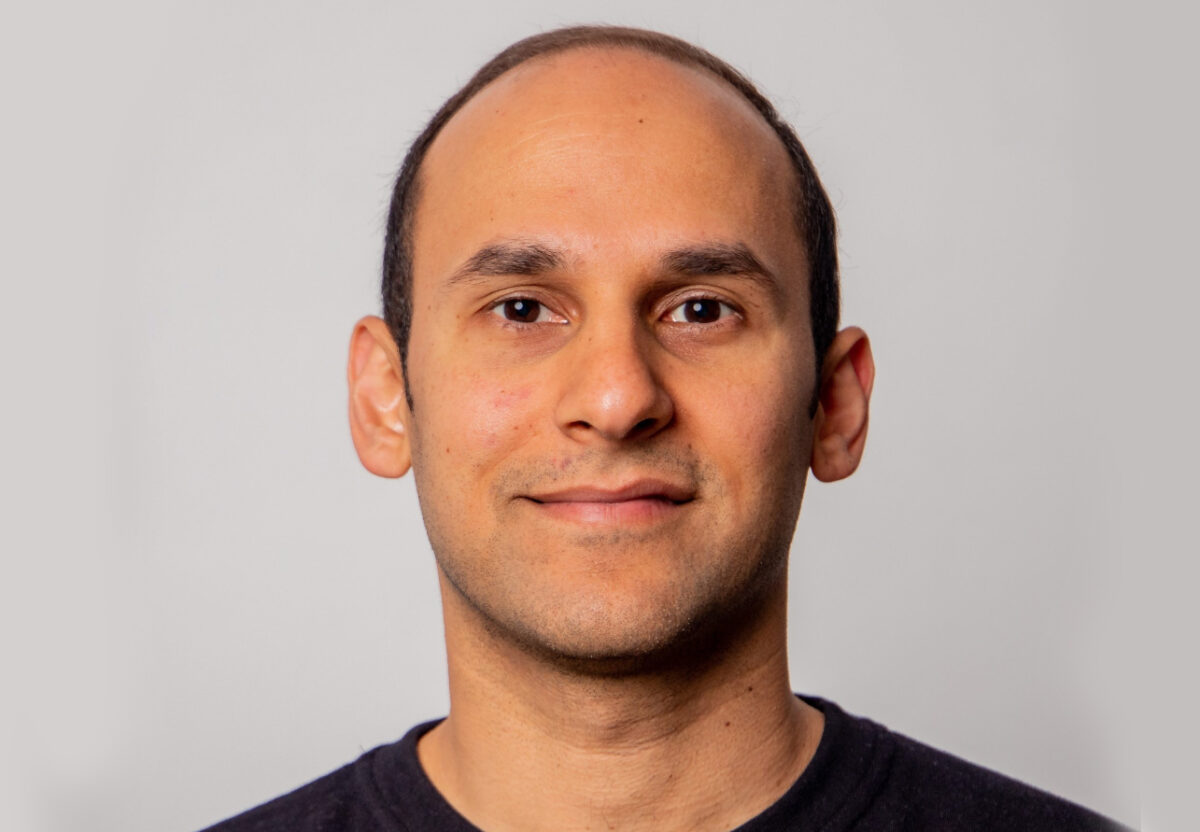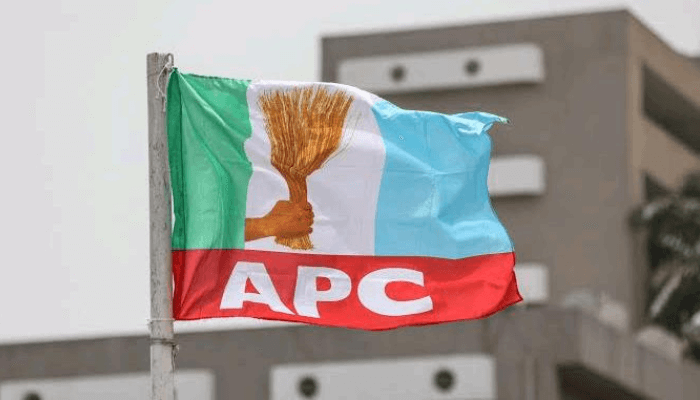It all started by happenstance. Investigative journalist ‘FISAYO SOYOMBO was in Port Harcourt on November 8, 2022 to track a case at the Rivers State High Court. Seeking directions to Hon Justice Enebeli J’s Court 8, he was instead misled to Hon. Justice Elsie Nwanwuri Thompson’s Court 7, where he was dumbstruck by the relaxed, almost playful demeanour of the first defendant’s counsel in an ongoing case while the claimant’s counsel cut a frustrated figure in his futile attempts to convince the judge to shun an out-of-court settlement and begin the trial. As he would discover, it was a case between giant oil company Shell — represented by Michael Amadi from Olaniwun Ajayi LP — and a couple with a brain-damaged and bedridden son. Something didn’t seem quite right, so he started to ask questions, read previous half-hearted publications on the matter, and work his contacts. He found the couple in a matter of days, but they declined to speak, being current employees of the oil company. Over the next five months, he would intermittently text, call and visit them, without much luck initially. He would eventually gain their trust. In March, 2023 they finally opened their doors to him. It was almost half-a-year since the first phone call, and no progress had been made with the much-touted out-of-court settlement.
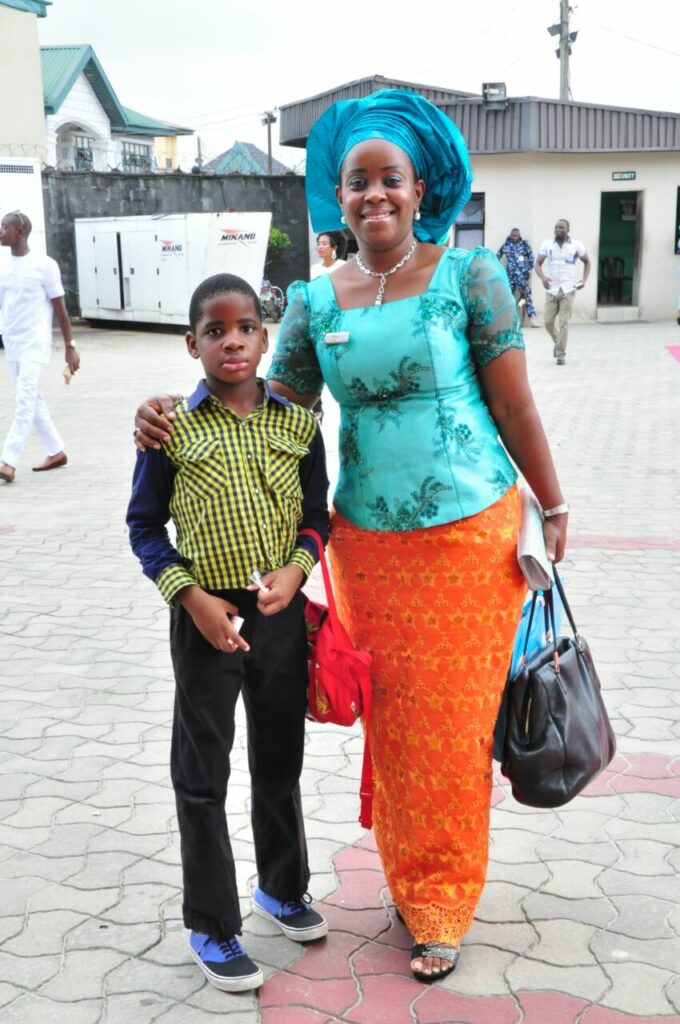
In September 2016, when Stella and Emeka Okoli consented to an appendicitis surgery for their 10-year-old only son Chinazam, the surgeon at the Shell Petroleum Development Company (SPDC) Industrial Area Clinic in Rumuobiakani, Rumuomasi in Port Harcourt, Rivers State, had told them it was a simple, straightforward 30-minute procedure. In fact, it was meant to be so simple the surgeon assured them their son would be discharged within four days of the surgery. Seven years later, Stella and Emeka Okoli are still waiting for their son to be “discharged”.
With the benefit of hindsight, this medical procedure was already primed for botching since the previous month when Stella first took Chinazam to the hospital after he complained of stomach ache. A physician at the clinic examined him and concluded he was fine. However, on Friday September 2, three days before his scheduled resumption of school, he complained of the ache again. Stella returned with him to the clinic and, this time, the doctor who examined Chinazam said he had to see a surgeon at once.
“He referred us to a surgeon,” a sorrowful, crestfallen Stella tells FIJ inside an imposing hospital in Central London when FIJ visited Chinazam for the first time in March 2023, seven years after the surgery. “As they spoke over the phone, I heard the surgeon scream in their language, asking why they let the appendix inflame to that extent.”
When Dr. Aruoriwo Alexander Dimoko, the surgeon, arrived at the Shell Clinic, he repeated his question: why did it take so long to present Chinazam for medical examination? Stella explained again how she had been told at the same clinic a fortnight earlier that the boy was fine.
“This appendix is inflamed and we have to take it out now,” the surgeon was quoted as declaring.
“Now?”
“Yes!”
Since the Shell office of the Okolis was inside the same Industrial Area complex with the Shell clinic, Stella invited her husband Emeka over. The hospital typically didn’t conduct surgeries on Fridays, but this, according to the surgeon, was an emergency. Emeka and Stella were shocked, and uncomfortable. But, reiterating the urgency, the surgeon warned that if they opted to take their boy out of the hospital without the surgery, they had to sign that it was purely their decision.
“We were told we could return to our offices and not necessarily hang around, because it was a minor surgery that would take about 30 minutes,” Stella recalls. “We left at 2pm. At about 3:45pm, I rang his dad and we walked back to the hospital.”
KILLED — BUT ‘STILL ALIVE’

I no no wetin happen o. Na water water full everywhere o, the brain, the kidney, the this, the that; na water water. I no know o, I no know wetin con happen.
“For me — and this is even where my pain started from — Chinazam went in for the surgery at about 2pm, but from then until 7pm, nobody, I repeat nobody, said anything to us,” laments Stella. “For five hours, we were just standing, sitting, walking up and down. If any door opened, we ran there, and someone told us ‘Oh, they’re just about to finish’. And the hours went by.”
Stella and Emeka were still sitting in the visitors’ lobby when the anaesthetist, Dr. Dafe Akpoduado, exited the theatre to converse with another doctor on the phone. Unbeknownst to the anaesthetist, the Okolis were within earshot. “For the rest of my life,” says Stella, “I can never forget what I heard.”
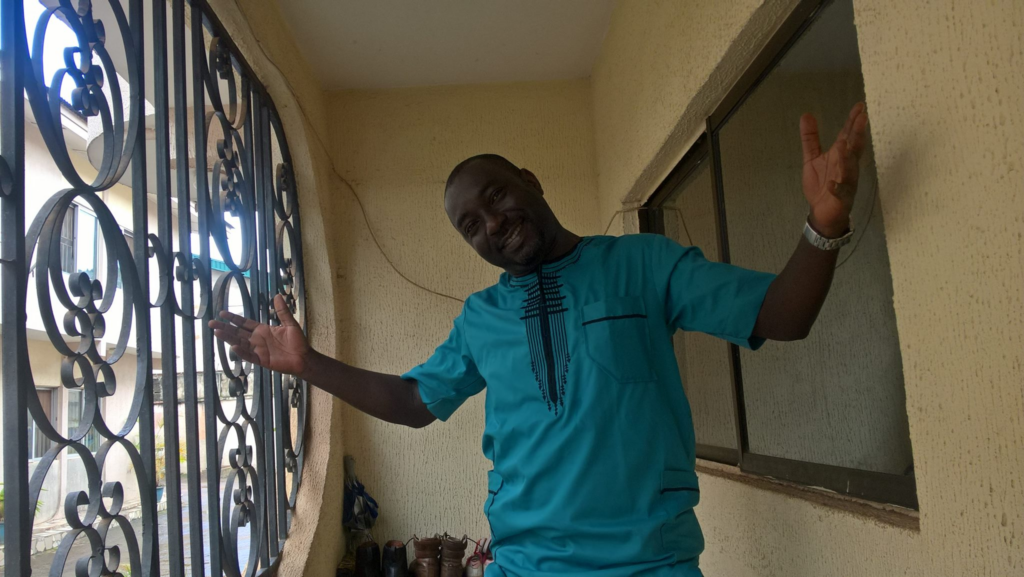
“I no no wetin happen o,” she quoted the anaesthetist as saying in pidgin, his hands akimbo. “Na water water full everywhere o, the brain, the kidney, the this the that, na water water, I no know o, I no know wetin con happen.”
Stella stepped out to confront him, prompting the doctor to defend himself: “I was not there o; I was not part of the team; he was just giving me a handover note.”
Emeka walked across the corridor towards the theatre, asking to see his son. The surgeon, Dr. Alexander Dimoko, met him by the theatre door and told him: “Chinazam had a drug reaction but is okay now.” Stella was next to go in. Thinking her boy was dead, she “wept bitterly” until the doctor told her “no; he’s still alive”.
“What I saw on that day, may nobody ever go through this — even people who say they have enemies,” she says. “Oh Jesus! May nobody ever go through this period.”
Shortly after, Chinazam was wheeled out on some life support systems into the Intensive Care Unit as the parents looked on, while the doctors kept whispering to one another.
THREE DAYS AND NO SIGN OF LIFE
Chinazam had slipped into a medical coma, but Stella was unaware until the third day post-surgery when he still wasn’t making eye contact.
“You know, I’ve already made up my mind that I won’t stay in unforgiveness; that’s what has helped me till today,” she tells me. “If you were not sure of what happened, you didn’t need to tell me he had a drug reaction.”
From September 2 until late night of September 9, 2016, Chinazam remained in the Shell IA Clinic ICU while Emeka continued to plead for him to be flown to a trauma centre in Europe or the Americas. But Shell, in their wisdom, felt otherwise. When he was finally moved abroad in an air ambulance in the early hours of September 10, it was to South Africa.
Emeka speaks about the consequences of Shell’s pussyfooting with surefootedness. “The day this happened, I pleaded with Shell to please take this boy to a trauma centre,” he recalls. “Shell kept him in the hospital for one week before they moved him out. A neurosurgeon in Texas told me he wished he met my son within 72 hours of the surgery; he said they had a protocol that they would have activated and it would have reversed the damage.”
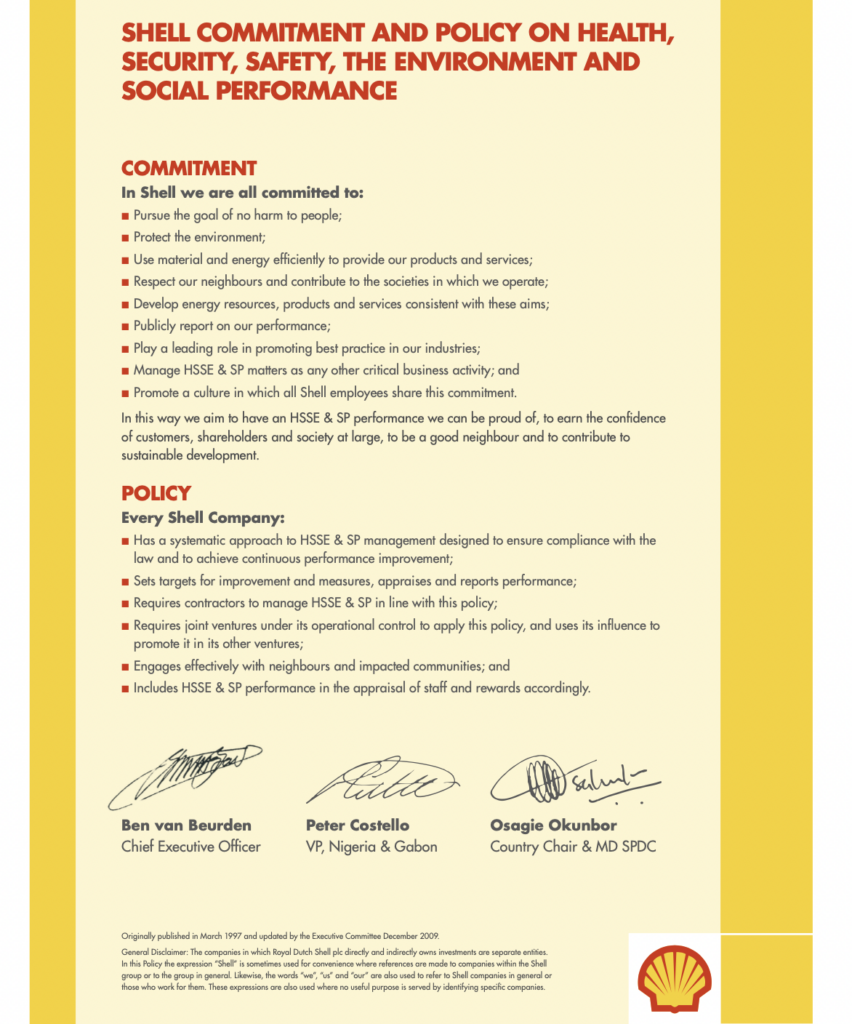
Emeka maintains Shell “was doing trial and error for one week” while hoping for the worst. “It appears to me that they were doing those things to wait for him to die, but he didn’t die,” he says.
And this was where Shell started to falter. If what happened in the theatre was a mistake, a human error, holding him back in the hospital was a conscious decision. By failing to fly Chinazam out of the country for at least one full week, and by sending him to another African country, Shell had very intentionally violated the first item on its Commitment and Policy on Health, Security, Safety, the Environment and Social Performance (HSSE): “pursue the goal of no harm to people”.
In the hospital’s communication to the Okolis, they claimed Chinazam lost oxygen during the procedure, but they didn’t know the duration of the loss. “How is it that they had a surgeon, an anaesthetist, someone in charge of the oxygen, and a minimum of two nurses, yet nobody could say how long Chinazam lost oxygen for?” Stella wonders.
SAVING MONEY AT THE EXPENSE OF A HUMAN LIFE
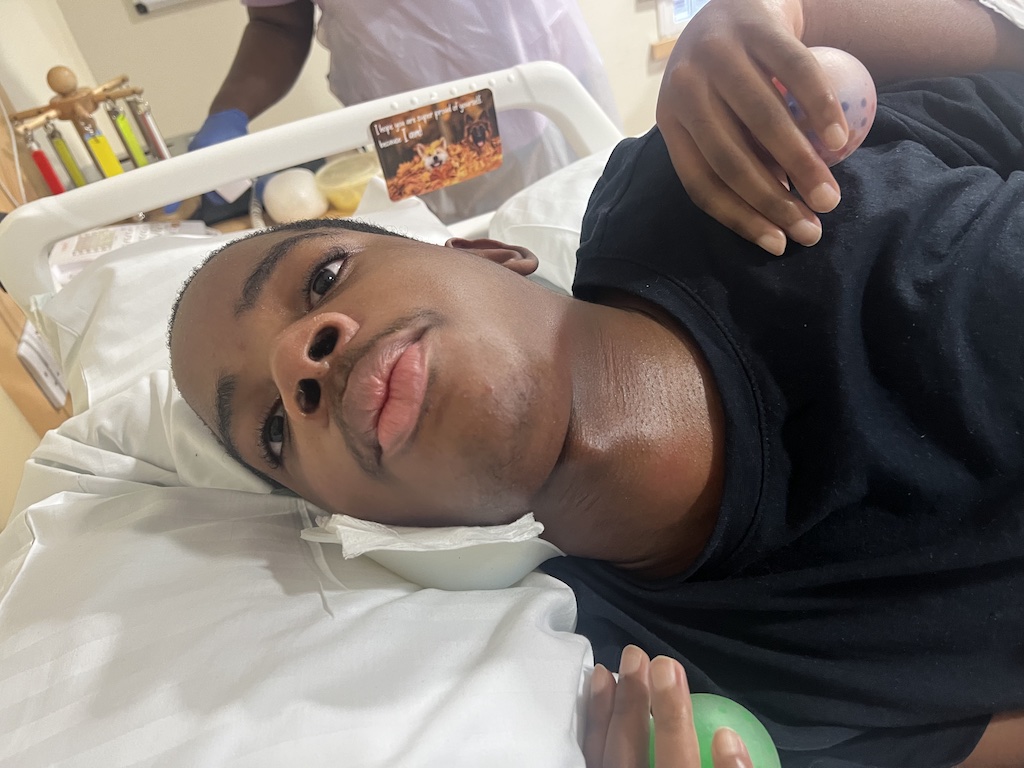
Multiple occurrences after the surgery reflect deliberate parsimony by Shell, Nigeria’s oldest energy company, at the expense of Chinazam’s life. For instance, as of December 2016, three months after he was flown to South Africa, nobody from Shell had visited him to physically ascertain the quality of available healthcare and his recovery. Similarly, when his parents started to question the unavailability of certain essential services in South Africa, Shell did not take them seriously, instead waiting until forever before sanctioning a relocation to the US.
One evidence is a December 8, 2016 email to Dr. Yusuf Ibrahim, Shell Health Manager, Nigeria, in which one of Emeka’s demands was: “The immediate plans for moving Chinazam to an evidence-based Centre for brain injury rehabilitation with innovative and advanced cognitive rehabilitation protocols/interventions, CAST program including robotic therapies, electrical stimulation for gait performance and mobility, spasticity management, independent living tools and all-in-one surgery-induced brain injury management facility like the Rehabilitation Institute of Chicago, Illinois; Kessler Brain Injury Rehabilitation Centre, New Jersey; and Good Shepherd (Pediatric) Rehabilitation, Pennsylvania, all in the USA, in conformity with especially Arcles 3 and 24 of the UN Convention on the rights of the child (CRC), as research shows that quality of care plays a significant role in patient’s recovery.”
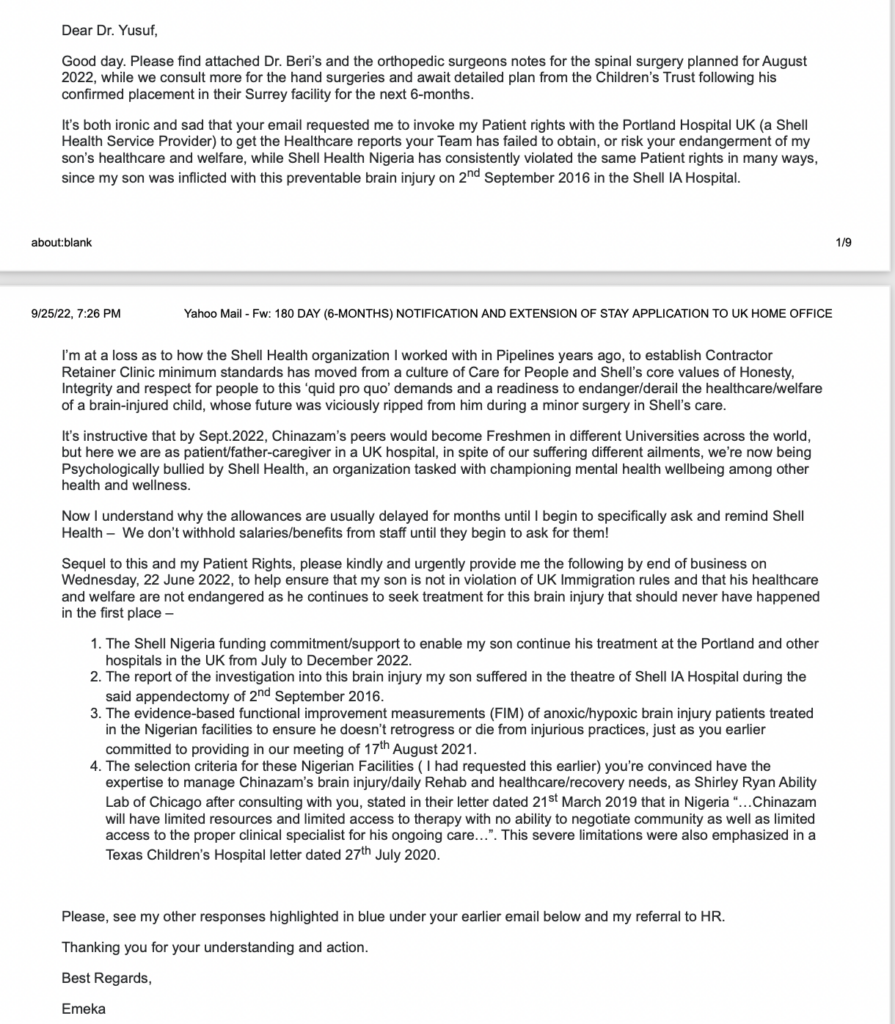
Some days before 2016 Christmas, Emeka was back emailing Shell officials to again press for his son to be relocated out of South Africa, given that, the Rehabilitation Facility, one of the two hospitals where he received treatment, had been honest to the Okolis about their equipment and technology limitations, specifically admitting that their rehabilitation was “manually-driven and non-technology-aided”.
Still, Emeka began the following year by pushing for Chinazam’s exit from South Africa. In an email in which he stopped short of massaging the egos of Shell Nigeria’s decision-makers, at whose mercy he had ostensibly found himself, he wrote: “This year, my family and I would immensely appreciate your intervention now more than ever before, as the first 6 months is crucial for laying the foundation for complete recovery (4 months is now gone, on 02 Jan 2017), and the Rehabilitation Hospital in South Africa where my only son (Chinazam) is, doesn’t have all the critical expertise (e.g. Pediatric Physiatrists), technology (Robotics, Electrical stimulation, etc) and Independent Neuro-professional oversight to review/monitor key goals delivery, required to facilitate his complete recovery from this hypoxic-anoxic brain injury, and thus make him independent in the Activities of Daily Living (ADL); as enumerated for this post-ICU ‘acute to post-acute’ rehabilitation phases by the Commission for the Accreditation of Rehabilitation Facilities (CARF) and the Brain Injury Association of America.”
Still, Shell did not move Chinazam to the US until March 2017
‘SHELL FOUND OUT THE TRUTH BUT HAS BEEN HIDING IT’
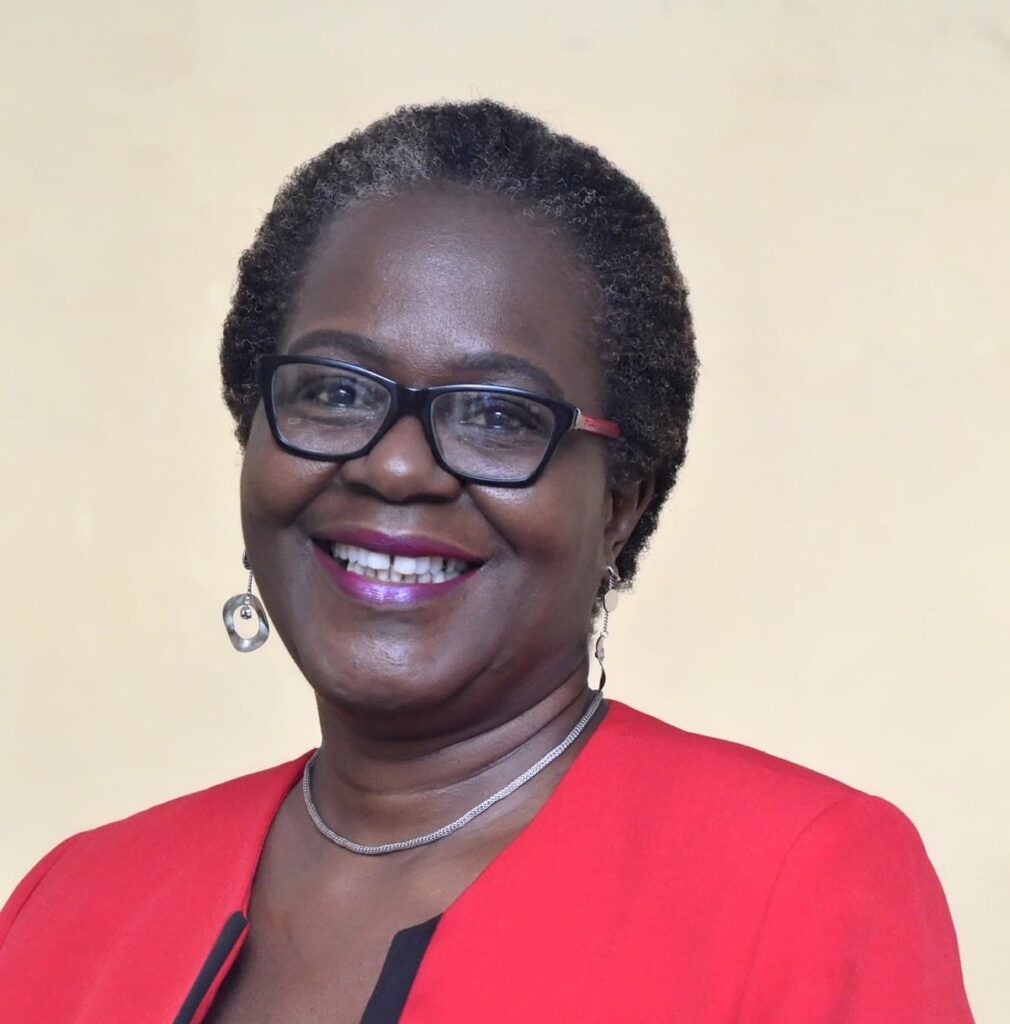
After the incident, Shell invited Ibironke Desalu, a professor and consultant anaesthetist at the Lagos University Teaching Hospital (LUTH), to probe what had transpired in the theatre on September 2, 2016. Her report, the Okolis believe, would provide evidence of the exploitation, medical negligence, torture, pain and suffering Chinazam was subjected to, leading to the brain injury. It is almost seven years after, and Shell has refused to release the report to the Okolis. Shell claims the report will not contribute to Chinazam’s health in any way. They also claim it does not form part of Chinazam’s medical report, but is only for their internal use.
But when Stella asked Dr. Ibrahim Yusuf “Do I have a right to that report, as Chinazam’s mother?”, the answer was yes.
Still, till this date, Shell continues to deny the Okolis access to the report, in clear violation of its self-designed document on ‘Patient/Family Rights In Shell Hospitals’. Of the many mouth-watering promises in that document, one stands out: “You can ask at any time what is happening to you and why. Everything will be explained to you honestly, in a manner and language you can understand.”
‘HAVE YOU EVER CRIED TEARLESS’?
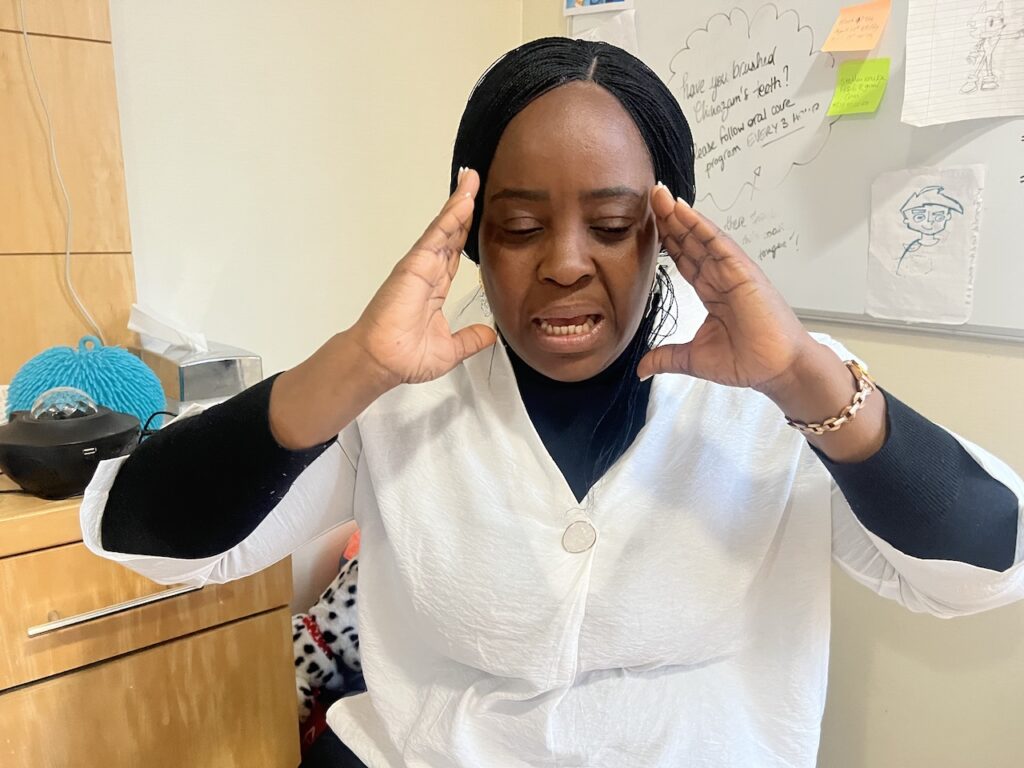
Chinazam was 10 when the surgery happened. Now 17, he has received seven straight years of care, his parents swapping roles to be by his side. As one might expect, the individual and collective toll on the Okoli family is indescribable.
“Have you ever eaten food and it was tasteless, yet you did not have COVID? Have you ever cried but tears could not come out of your eyes?” Stella asks, face sunken, voice sullen, prompting the journalist to momentarily halt the interview to shed tears of his own.
When the interview resumes, she continues: “I have experienced it. As I’m speaking with you, I am crying. But tears cannot come out of my eyes.”
Stella was primed for her Ph.D when the surgery was botched, but all that has now evaporated. For “every single day” of the four months of Chinazam’s South Africa hospitalisation, thoughts of his death flooded her mind just before she knocked on his door after arriving at the hospital from her hotel room. A child who was famed for his athleticism, who taught friends and schoolmates how to backflip and was consequently famously dubbed ‘the somersaulting master’, was now being spoken of to her mum as someone who had suffered a lifelong disability.
“He had all his dreams set up for him,” Stella recalls. “He was going to be a pilot, a footballer or a Robotics/AI Entrepreneur.”
Chinazam’s two sisters were closing in on 13 and 14 just before the surgery. A teary Stella says to care for him, she abandoned her teenage girls at the age when she should have been there for them the most. The impact of her absence, she adds, is something she is “still dealing with today”.
‘IT REALLY HURT THAT MY MUM WASN’T THERE’
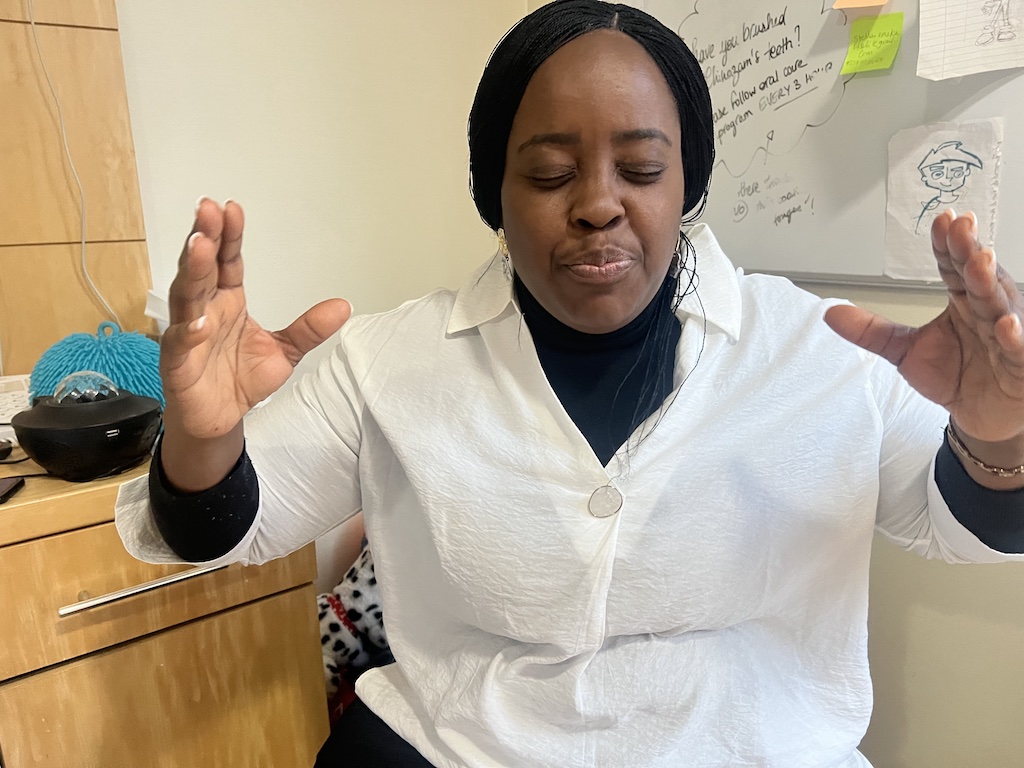
Those claims were corroborated by Salome, her last girl, who still nurses regrets about her mum missing numerous milestones not only in her life but in her older sister Deborah’s.
“When I achieved a great academic milestone at some point in high school, my mum wasn’t there to celebrate with me and it really hurt,” the 19-year-old college student of Public and International Law confesses. “I wouldn’t say I’ve been a stellar student — I struggled during my junior years — so the milestone upped my spirits. She also missed three of my birthdays and could only celebrate them with me in arrears, which was mostly more than two months after.”
One of Chinazam’s cousins vowed never to pray again — how can a God exist and let an innocent boy suffer a travail of this magnitude?
Stella remains inconsolable by “the fact that you have to look at your child every day, and the only communication you can make is occasionally with the eyes”.
Emeka paints a far gorier picture. “I have practically lost every single thing that has to do with freedom, because my whole life revolves around him,” he laments. “I lived with Chinazam in Texas for more than two years before I went to India with him for a treatment, then Belgium for another, then the UK.”
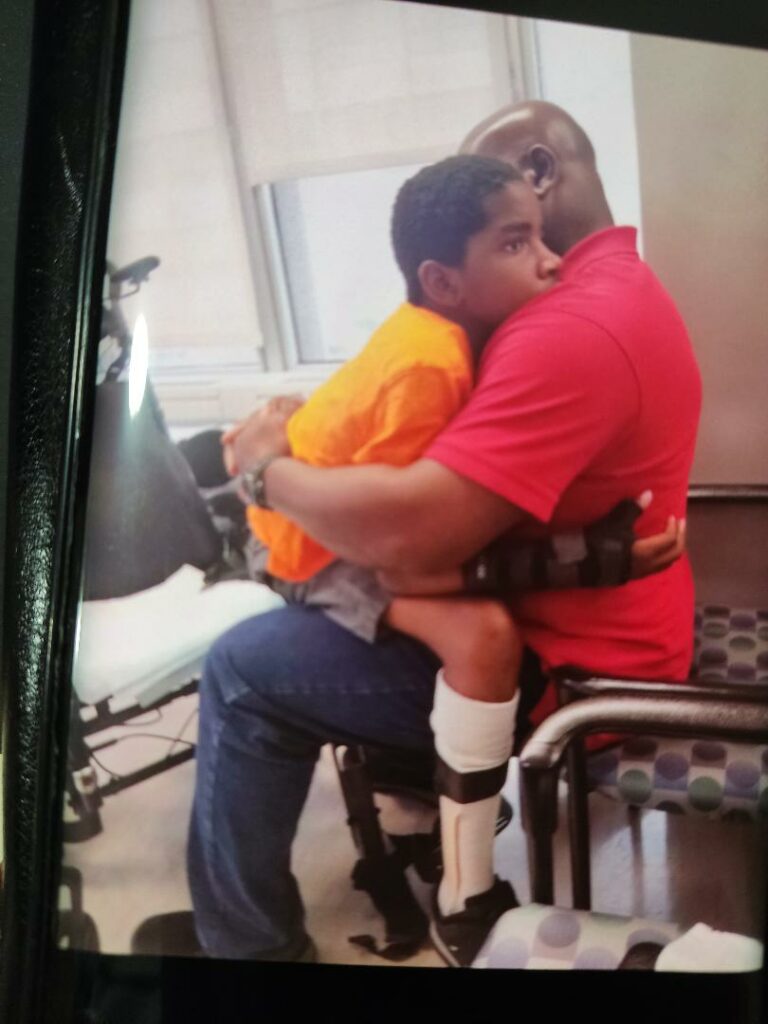
More worryingly, Emeka currently suffers from chronic back ache due to years of carrying Chinazam. His second daughter is verging on her fourth year in university, but April was the first time he visited her in school. The first has spent four years studying Medicine, but Emeka has not yet managed to show up in her school. “This would not have happened, if not for Chinazam, as I used to be a present dad in their lives,” he maintains.
Emeka says the tragedy “has practically wrecked our lives”, leaving him clutching at survival by “talking to psychologists”. The bad news is that there is a trigger that is almost impossible to banish.
“Till date, I struggle to hold myself when I see a man playing with his son, something Chinazam and I used to do,” he says in the most emotion-laden voice you’d ever hear from a father. “It’s something I’m still learning to deal with. It’s PTSD for me; it tears me apart. But this is something I deal with every single day of my life. So my life practically has come to a standstill. And I can’t even begin to talk about closure, because I still do not know what Shell did to my son.”
FROM BANTERS TO THE COURTROOM
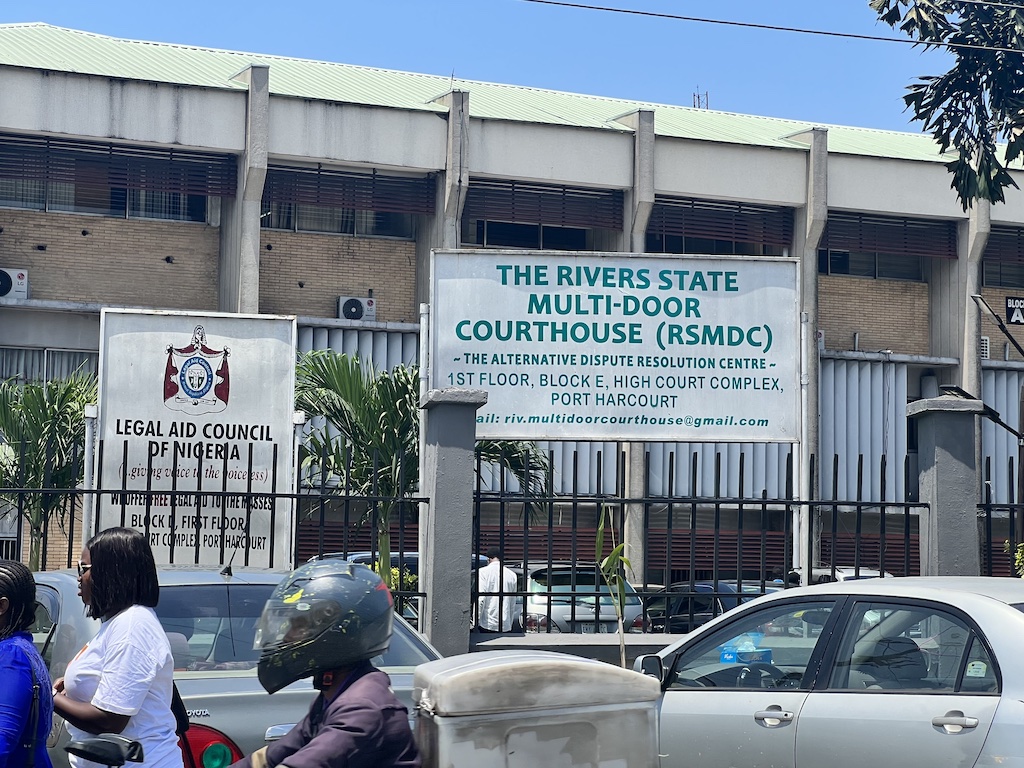
“Honesty, integrity and respect for people”. These three form “a set of core values” Shell boasts as “underpinning all the work we do”.
On both its Nigerian and global websites, the multinational corporation so confidently states: “The Shell General Business Principles, Code of Conduct and Ethics and Compliance Manual help everyone at Shell act in line with these values and comply with relevant laws and regulations.”
For many years, the Okolis fell for it, only recently realising that these words, especially in Shell Nigeria, were just lip service.
“Shell’s core values are honesty, integrity and respect for people, and they are ingrained in us; those values resonate with my personal value of care,” Stella says confusedly. “It never occurred to me for once that I’d ever have a conversation about Shell in this manner, much more a court dispute. But when your child is injured and he cannot talk, he cannot walk, he can’t eat, he has a G-Tube — so he cannot fight for himself — then me, as his mother, cannot advocate for him? I’d rather die. I’d rather not be alive, and I’m using very strong words.”
By Stella’s account, Shell and the Okolis were holding periodic conversations at the start. For two years, they met every Tuesday to discuss — talks that sometimes filled Chinazam’s parents with hope. Sometime in the course of those meetings, they started hearing from Shell’s representatives that Chinazam had to return to Nigeria. He was in the US at the time. They did not oppose it, but they worried about the intricacies of the relocation. How would he school, get integrated into society, or access therapy?
Shell did their survey and the Okolis theirs. School, for example, was unclear. The Okolis were managing very serious seizures for Chinazam at the time. He also was not feeding orally; just via the G-Tube. He hadn’t passed his last videostroboscopy, during which food gets put in someone’s mouth and viewed from a computer to see if they are able to cough it out if getting choked. He had suffered a bit of a neurological impairment as part of complications during that catastrophic surgery. The videostroboscopy revealed that if asleep and food goes to the wrong place, Chinazam will aspirate — the fluid goes into his lungs — and die.
Stella checked up to seven Nigeria-based schools labelled ‘inclusive’, and produced a shortlist of two. One, run by a Canadian, lacked staircase access for children in wheelchairs. Once the founder said staff carried the children up on their shoulders, Stella knew Chinazam to Nigeria couldn’t work. To ensure Chinazam’s safety, Emeka invited Shell Medical for a Risk assessment, a key requirement of the Shell’s HSSE and SP Control Framework employed in Shell Contracts, Operations and Projects to ensure Risk mitigation to the ALARP (As Low As Reasonably Practicable) criteria for People, Asset, Environment and Reputation. To Emeka’s horror, Shell continued foot-dragging and eventually frustrated the exercise.
To fend off Shell’s spirited attempts to force Chinazam back to Nigeria, Shirley Ryan AbilityLab in Chicago, US, where he was receiving speech, physical, occupational, aquatic and hippo-therapy therapies, wrote a ‘To Whom It May Concern’ in March 2019, warning that “if Chinazam should return home at this time, he will have limited resources and limited access to therapy with no ability to negotiate community as well as limited access to the proper clinical specialist for his ongoing care”.
“In the immediate and short term, Chinazam has several medical appointments with Neurology and ENT, which will aid in his rehabilitation,” read the letter, signed by Gadi Revivo, DO, Attending Physician, Pediatric and Adolescent Program Rehabilitation Program. “We are recommending at least another 6 to 12 months for further evaluation and treatment.”
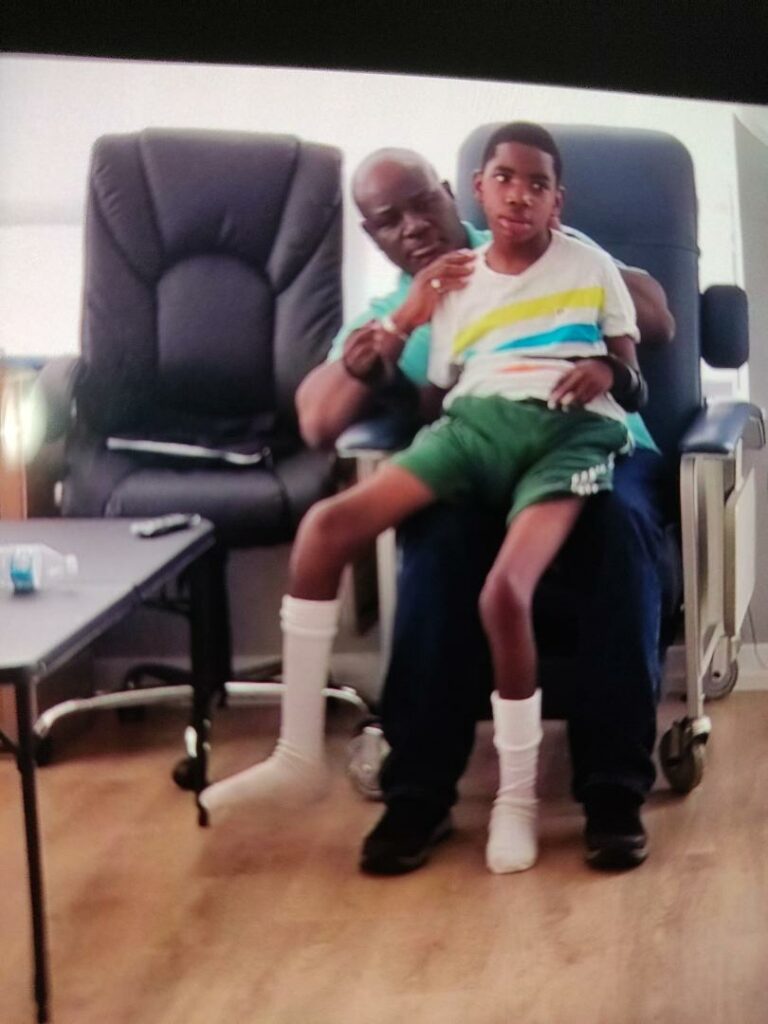
More than a year later, with Shell still scheming to engineer Chinazam’s return to Nigeria, Texas Children Hospital penned a similar letter, writing: “If Chinazam should return to his home country at this time, he will have limited resources and limited access to specialised neuro-rehabilitation and therapies and limited access to proper clinical specialist for his ongoing care.”
“We are recommending at least another six months for further evaluation and treatment as described above,” wrote Mariella Hillerand, MD, Physical Medicine and Rehabilitation Attending, Baylor College of Medicine, Texas, on July 27, 2020.
Shell then began to say they would stop caring for Chinazam once he turned 21, much to the Okolis’ chagrin. At this point, the Okolis still intended to keep things civil. Stella, for example, had been at Shell since 25, working in community development, partnership development and, much later, risk management. Now 51, Shell is where she has spent all her adult life.
“This is a lifelong injury that happened in your clinic, so how can you take care of him with an existing HR policy for dependant healthcare?” Stella, now freshly annoyed, asks. “A child walked into your clinic and came out immobilised and nearly half-dead and you want to care for him on an existing HR policy? How?”
After a long period of mental torture during which the Okolis “tried to keep it gay, laugh and put a human face to it”, after every Tuesday meeting that drained Stella and left her struggling to accept that it was her child being placed on viewgraph, the Okolis shared a US-certified lifecare plan for Chinazam with Shell. This was a plan written by a licensed life care planner, but Shell held it for more than two years. By the time the Okolis got the next sniff of the plan, Shell had literally shredded it, reshuffling its tenets and changing currency conversions via unapproved, non-expert certified personnel, which would have been unthinkable and harshly punished if this had happened on a Shell Crude oil and Gas Asset operation or project environment. It was at this point the Okolis realised they had a real fight on their hands. They had no other option but to go to court. This was August 2021.
THE OKOLIS’ FIRST LAWYER ACTED COMPROMISED
One and a-half years on, the trial has not effectively started, with Shell bringing in any objection at each sitting, and the Okolis also shuffling their legal team.
“I think the first lawyer we went to court with, he compromised at some point, so we had to discontinue with him,” says Stella.
Shell had made the Okolis a monetary offer, which was instantly rebuffed, surprisingly infuriating their lawyer. They would come to meetings and their lawyer would be shouting at them. He told them they would never again, in court or out of it, get anything close to what they’d scoffed at. But the Okolis were always clear: they were not after Shell’s money.
“We told him our rejection was based on the lifecare plan; it was not based on emotion,” says Stella. “We even said to them, don’t pay us any money. Put it in a trust account and whenever Chinazam needs money, charge it from there.”
There have been many settlement meetings since Justice Elsie Thompson took over the case from Justice Weli Chechey, and the Okolis have now decided to absent themselves from further meetings because “it is so mentally draining, so painful”.
SHELL WOULD NOT BEHAVE LIKE THIS ABROAD

Asked if Shell would conduct itself differently if this happened abroad, Emeka’s answer was emphatic: “Very differently, extremely differently — because they know that they would have been confronted with the law. They have been doing this with a certain degree of we-have-been-getting-away-with-things-like-this.
“The human rights-literate public, the independent press and the stringently mature rule of law in developed economies would have held Shell so irrevocably accountable, that Shell would have had no option but to do the right thing from day one, beyond what is now evident as lip service to their Policies and Procedures on care for People.”
He recalls how he practically fought Shell to move Chinazam out of South Africa after seeing the limitations of their technology. It took Shell more than two weeks to agree with him. And when they did, Emeka himself — not Shell — handled the drudgery of finding hospitals and specialist physicians in the US and elsewhere for the oil giants to talk to.
“Shell was unwilling to follow through with the work,” says Emeka. “Again, when it was time to move him from Chicago to Texas, I also found the hospital.There were some specialists I asked them to please discuss with, but they ignored me.”
Among the things that continue to irk Emeka is Shell’s insistence, “till date”, that Chinazam had a drug reaction.
“It was further down the line that South African doctors told us this was not a drug reaction but a brain injury,” he says. “The US and UK doctors confirmed it was a brain injury — hypoxia, caused by a lack of oxygen to the brain during surgery. Shell never told us. Shell continued deceiving us that it was a drug reaction and he would be okay. But if I have to lay my life for this boy, I will. They will not get away with this.”
THE SOMERSAULTING MASTER CANNOT MOVE HIMSELF ANY LONGER ☹️
In court, Shell continues to play a conspicuous spanner-in-the-works game that any fair party can effortlessly spot. The proceedings on March 20, 2023 were a replica of FIJ’s first time in court in November 2022. Shell’s lawyer Ismail Balogun from Olaniwun Ajayi chambers was at his annoying best, often chuckling, sometimes laughing, always addressing the claimants’ lawyer Dada Awosika and everyone else with such a sense of camaraderie one would never imagine a human life is at the centre of this suit. Meanwhile, there have been multiple sittings between those two dates.
This time, just as the first, when the case was called, counsel to Shell informed the court that settlement talks were ongoing, and asked for more time; the judge adjourned the case by more than a month after confirming that the settlement had taken too long, then gave Shell more time “for the last time” to reach an out-of-court settlement otherwise the matter would proceed. Guess what? The judge had spoken in a similar tone at the preceding case in February and at FIJ’s first presence in court five months earlier!
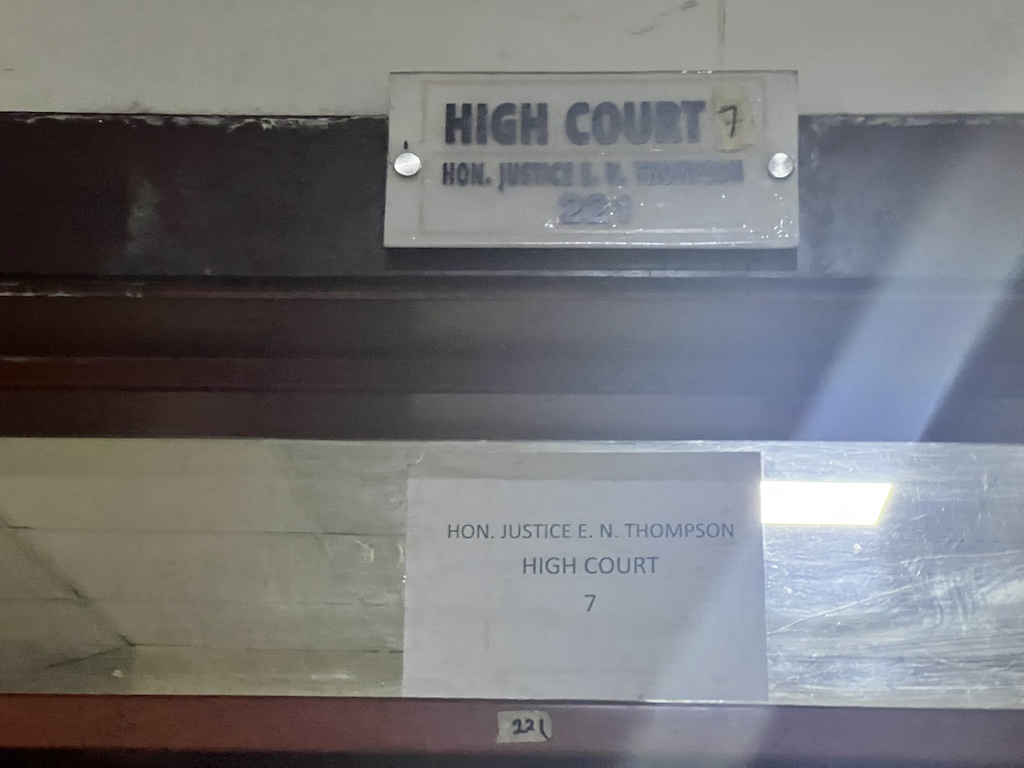
Meanwhile, inside the hospital where he is receiving treatment, Chinazam continues to battle for his life, helped by the sterling care of dutiful nurses and doctors, and the obsessive love of his mother and father. The protocol for keeping him healthy, even comfortable, are delicate: his positioning in bed, where and how to touch him, where and how to lift him, the strengthening and positioning of his arms and elbows, how long he should lie down on a spot for, how often he should be turned every few hours, and the number and arcs of the pillows to be used to support his head, neck and legs. It is an endless cast of caregiving procedures in which every minute counts.
In FIJ’s two visits to the hospital, the delicate handling of Chinazam did not totally obliterate pain. He winced occasionally, even at the faintest of touches. Sometimes, he grunted — times when he tried relentlessly but ultimately futilely to talk. His pain in such moments is so visible one can almost touch it.
‘THE BOY CANNOT UNDERSTAND WHY HE CANNOT TALK’
It is a pain her older sister shares. “There are times I see he’s trying to talk. He knows he is trying to say something and you can see that he is frustrated or confused, and he cannot seem to understand why it’s so hard for him to talk,” says Deborah, 21, a medical student. “It’s in moments like that when I look at him and see the obvious distress he’s in that it kind of hits me that this is a really sad thing that has happened.”
Deborah considers it all very sad, knowing Chinazam “was honestly someone you couldn’t be sad around”.
“He was obsessed with my mum’s ipads… he loved games. My sister wasn’t interested in those things, so he was always bringing them to me to play with him. We used to bond over that, so we were very close,” she says of their childhood. “He was very energetic, always on the field. He was the kind of person you couldn’t stay angry with for a long time. He just had a lot of love and it was really easy to love him back because of how soft he was. Such a genuine person. He was just so sweet.”
Chinazam’s other sister, Salome, remembers him as “energetic, so full of life, musically gifted and great at Computer Science”.
“He was quite annoying sometimes, but it was endearing because he had a wholesome and overall genuinely positive aura and disposition,” she says. “No matter how many times we argued, we’d still smile and laugh afterwards and I loved it.”
Till today, Salome misses Chinazam’s “energy”. “His absence brought a lot of silence to our house after his surgery,” she laments. “The shift in our family dynamic was very conspicuous.”
Of her personal loss, she says: “The only thing I really regret is not telling him or showing him enough how much I love him. Looking into his eyes after he woke up and talking to him without him replying was quite unsettling and it made me feel like I had lost some part of my brother in a sense.”
NEVER GIVING UP
As expected, some have asked the Okolis: since Chinazam is brain-damaged, why not just let him go? Stella, first to respond, recalls being asked by someone: “Na Jesus?”
“My response to such people is that I don’t wish anyone to go through something like this,” she says with a slight shake of her head. “You know why? Talk is very cheap. So, as long as he is breathing, we would do whatever it takes, as long as it lies within our power, to give him dignity. Dignity, that’s all. Just to have dignity, which is a fundamental human right.”
Emeka is not even entertaining any other thought than seeing his son walk someday. “Science evolves every day, and I believe that science will someday find the cure for my son’s condition,” he enthuses. “However, if that doesn’t happen, I may have to sacrifice the rest of my life by enrolling in a Ph.D programme in Translational Neuroscience to personally find that cure.”
SHELL: TALK TO THE JOURNALIST IF HE’S ‘HELPFUL TO OUR CASE’

FIJ sent emails to Marno de Jong, Senior Vice President Nigeria, Shell; Osagie Okunbor, Managing Director of SPDC and Country Chair, Shell Companies in Nigeria (SCiN); Ibrahim Yusuf, Shell Health Manager, Nigeria; and Femi Oduneye, VP, Health Group, requesting for comments. Shell initially appeared ready to engage, with Bola Essien-Nelson, SCiN Media Relations Manager, writing: “I’m connecting with you with regards to your messages to Osagie Okunbor and Dr. Yusuf Ibrahim concerning the above-mentioned matter. We are working on your enquiry and will get back to you next week.”
But hours later, Essien-Nelson would send a follow-up email declining to comment. “While we note your interest and request for information as an investigative journalist, we are unable to provide any response to the questions set out in your email as the issues regarding the treatment of Master Chinazam Emeka-Okoli at SPDC’s facility is [sic] already a subject matter of an ongoing litigation. Accordingly, we are legally constrained not to make any comment or interfere with the matter that is sub-judice,” she wrote.
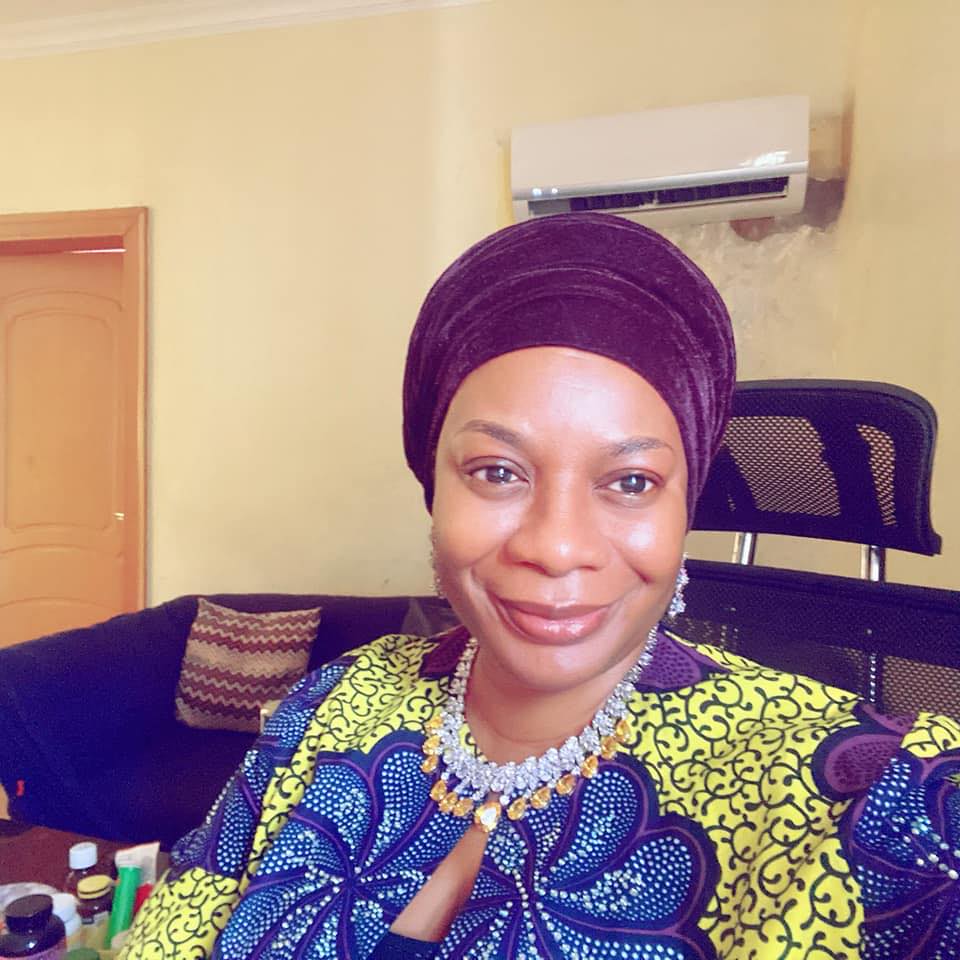
Her email also carried what appeared to be a veiled threat: “Please note that it will amount to flagrant interference with the administration of justice, and contempt of Court to interfere with the fair trial of the matter in Court or make public statements or comments that may jeopardise the fair trial of the matter before the Court… We trust you are properly guided as parties wait for the final determination of the matter in Court.”
Of worthy note, Essien-Nelson’s first email was a response to a forwarded email from Okunbor, which read: For your review and response to the person if deemed credible and/or helpful to our case. In simpler words, do not talk to the journalist… if he isn’t helpful to our case.
Ibironke Desalu, the chairman of the probe panel set up by Shell, also declined to talk. “No comments. The official report was submitted to Shell,” she simply said.
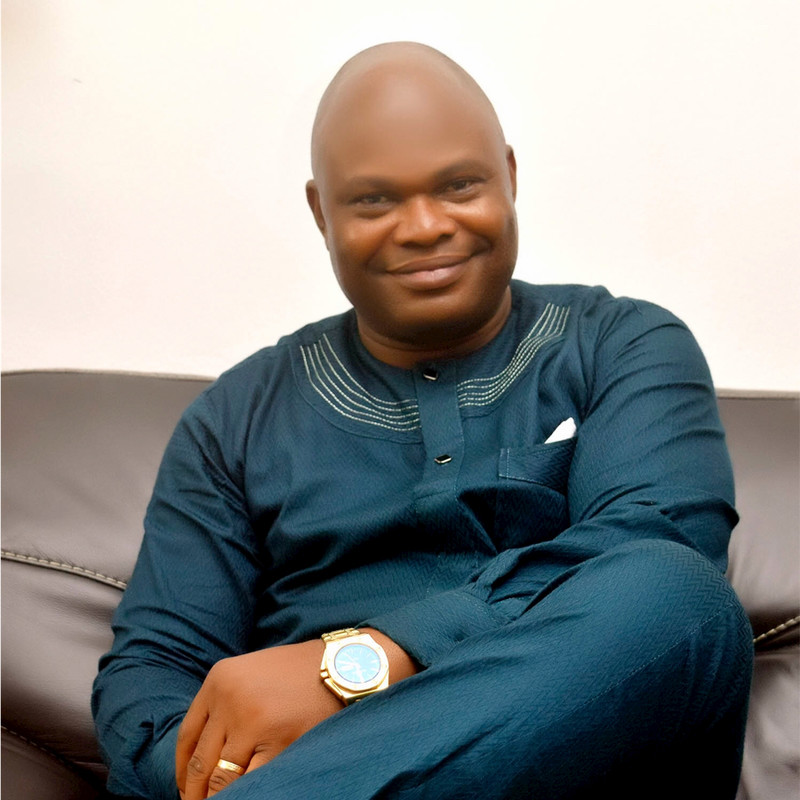
The response from Dr. Alexander Dimoko was similar. “Please kindly contact my solicitors,” he said.
From Dr. Dafe Akpoduado, there was no response at all.
One person who did manage to speak with FIJ, though, is Chidi Odinkalu, a professor and former chairman of the National Human Rights Commission (NHRC).
“It is staggering in the corporate arrogance and malpractice,” Odinkalu said. “I don’t know how these people sleep with themselves — the company executives, the doctors and their lawyers. No one wants to be human about destroying the life of this boy and hopes of his family. It is heart-rending.”
NOT THE FIRST TIME
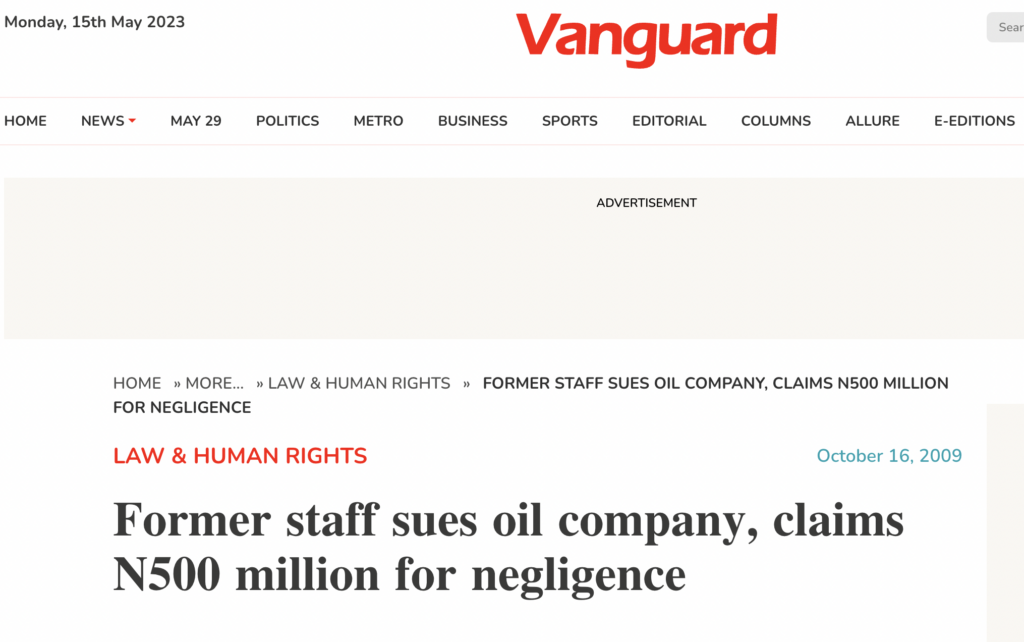
This is not the first time Shell Nigeria is facing accusations of medical negligence and subsequent rights violations in its post-damage response. In 2009, Sheri King, a former employee, and her then 17-year-old-son Opeyemi King filed a N500m action against the oil company and one of its medical staff, Dr. Fred Eigbe, for “personal injuries, loss, pain and suffering caused by negligence of the company’s medical centre”.
In her statement of claim, King had said that having attended prenatal care at Shell Medical Centre throughout her pregnancy, she fell into labour in the early hours of November 1, 1992 and was rushed to the medical centre at 2 a.m., but there was no medical doctor, gynaecologist or obstetrician on duty to cater to the obvious emergency, and was left to the second-level medical attention of nurses/midwives who could only conduct routine procedures.
She claimed the medical officer arrived 10 hours later and physically took charge belatedly, causing the child foetus to suffer acute distress before delivery, after which the mother was transferred to LUTH for further treatment. King claims Opeyemi was subsequently unable to achieve the usual milestones of childhood, such as crawling, walking, talking and was constantly having violent convulsions, vomiting, irritability, weak muscular activity and a lack of mental capacity, for which he was taken to the Shell medical centre incessantly. When Opeyemi turned six, for example, he had never walked because his muscles had not developed.
King also said Shell invited her to sign a document absolving them of any liability for her son’s condition, but when she requested to seek advice on the contents of the document, she was denied; and when she refused to sign the document, Shell withdrew its funding of Opeyemi’s therapy.
FIJ also understands that a current Shell employee lost a child at the company clinic under questionable circumstances, but he — just like the Okolis initially did for five months — declined to speak.
WHAT THE OKOLIS WANT? JUST TWO THINGS
By Stella’s account, the first time the case got to court, Justice Weli Chechey looked at Shell’s representative and said: “Looking at you, I’m not sure you’d have the boldness to give Shell this message. However, I like Shell so much and I have read this case copiously; this is not the kind of case Shell should allow to come to court. In this kind of case, you call the parents to one side and ask them: “What do you want?”
With Shell not doing it, I ask the Okolis what they want.
“Obviously, number 1, we want the Desalu Report,” answers Stella. “Secondly, there is a lifecare plan that has been written for Chinazam. Just take care of it. We don’t want their money; just put it in a trust and let the hospital draw from it. Then pay off our legal fees – because we have been paying the lawyers.”
But this is in conflict with what Shell wants, which is not to be associated with Chinazam Okoli any longer. It is to pay the Okolis off. Forever and ever.
Produced with support from the Wole Soyinka Centre for Investigative Journalism (WSCIJ) under the Collaborative Media Engagement for Development Inclusivity and Accountability project (CMEDIA) funded by the MacArthur Foundation
Independent, public-interest journalism has never been more vital than in times like this when truth is constantly being suppressed. With your support, it will be easier for us to continue speaking truth to power and preserving your right to know
Make a donation to FIJ today
Donate Now
Subscribe
Be the first to receive special investigative reports and features in your inbox.


